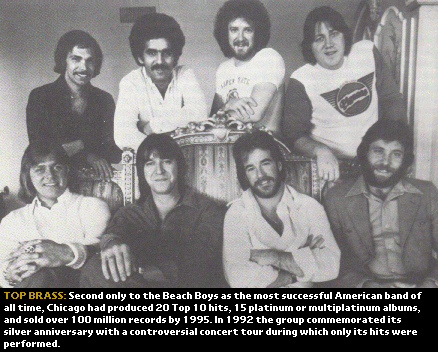- Home
- Introduction, Update Information, Links
- The Super Seventies "Classic 500"
- Readers' Favorite Seventies Albums
- Seventies Single Spotlight
- The Top 100 Seventies Singles
- Favorite Seventies Artists In The News
- Seventies Almanac - Year By Year
- Seventies Singles - Month By Month
- Seventies Albums - Month By Month
- Seventies Daily Music Chronicle
- Seventies Superstars In Their Own Words
- The Super Seventies Archives
- Seventies Trivia Quizzes & Games
- Seventies MIDI Jukebox
- The Super Seventies Bookstore
- The Super Seventies Photo Gallery
- Seventies' Greatest Album Covers
- Popular Seventies Movies & TV
- Seventies Celebrity Portrait Gallery
- Seventies Lyrics Hit Parade
- Top Seventies Artist Music Videos
- Seventies Usenet Music Forums
- Seventies Smiley Calendar
- EXTRA!
- Superseventies.com Facebook Page
- Superseventies.com Reddit Discussions
- The Super Seventies Blog
- Tweet The Seventies
- RockSite InfoBank
- Beatlefan Site
- Thanks For Your Support! / Top Sellers
- Search The Rock Site/ The Web
Chicago
Columbia 10390
Oct. 1976
Billboard: #1

![]() hicago, the metropolis, may be the "second city," but Chicago, the musical aggregation, has long reigned as America's premier jazz-rock ensemble. The group was first formed in 1967 as the Missing Links, an outfit that sported sharkskin suits and greasy pompadour hair-dos. Dropping that image, they called themselves The Big Thing and then the Chicago Transit Authority, a name they were forced to shorten when Mayor Richard Daley initiated a lawsuit. In their new identity, they were mining much the same territory as Blood, Sweat and Tears ("You've Made Me So Very Happy," "Spinning Wheel").
hicago, the metropolis, may be the "second city," but Chicago, the musical aggregation, has long reigned as America's premier jazz-rock ensemble. The group was first formed in 1967 as the Missing Links, an outfit that sported sharkskin suits and greasy pompadour hair-dos. Dropping that image, they called themselves The Big Thing and then the Chicago Transit Authority, a name they were forced to shorten when Mayor Richard Daley initiated a lawsuit. In their new identity, they were mining much the same territory as Blood, Sweat and Tears ("You've Made Me So Very Happy," "Spinning Wheel").
From the beginning, however, the band disputed the comparison. "Our roots are basically rock," singer-keyboardist Bobby Lamm pionted out in a Down Beat interview, "but we can and do play jazz. Blood, Sweat and Tears is basically a jazz-oriented combo that can play a lot of rock."
Living up to their name, all but Lamm hailed from the Windy City, and he moved there as a teenager. "We were friends before ny of this (success) started happening," woodwind player Walter Parazaider told the New York Post in 1977. "Personally and musically, we're a family," Lamm said.
The group's big break came when James William Guercio, a college friend who had moved to Los Angeles, became their manager and producer. Guercio was then influential at Columbia Records through his production work with the Buckinghams and Blood, Sweat and Tears. He moved the members of Chicago Transit Authority to Los Angeles, paid their rent and found them work.
As the house band at the Whisky-a-Go-Go, they gained a strong local following and, with Guercio's help, signed with Columbia in 1969. They soared to superstardom by sticking to a well-honed formula of jazz-rock songs, funky licks and impeccable musicianship.
Although this combination proved unbeatable, Chicago never became the darlings of rock or jazz critics. In fact, the band was often villified as "purveyors or pap" and the "Mantovanis of rock." But Chicago looked the other way and kept a steady string of albums bouncing up the charts, all identified merely by Roman numerals.
"Our albums are simply documents of where we were playing at the time of their recording, nothing more," Lamm told Michael Ross of Rock. "So any upward movement, any gains that have been made since the first album, are purely unintentional. The music just happened that way."
For an album-oriented band, Chicago did not shrug off the singles market. Between 1970-1975 they scored 10 Top 10 singles, including "25 or 6 to 4" (#4), "Saturday in the Park" (#3), "Just You 'N' Me" (#4) and "Old Days" (#5). Their Chicago X album provided their biggest single yet, "If You Leave Me Now," a beautiful, romantic ballad written by Cetera. It debuted on the Hot 100 at number 60 on August 14, 1976, and moved to the top of the chart 10 weeks later.
What is the secret to Chicago's long-term appeal? "Chicago is the most successful experiment in group therapy ever to go down in history," said Lamm in Down Beat. "There have been times when each of us wanted to walk away... (But) if somebody is obviously egoing out, there's six of us to deal with and we'll get together and give him a knuckle sandwich."
- Fred Bronson, The Billboard Book of Number One Hits,
Billboard, 1988.
![]() Reader's Comments
Reader's Comments
No comments so far, be the first to comment .
![]() Main Page
| Additional Singles Intro
| Singles By Month
| Seventies Almanac
| Search The RockSite/The Web
Main Page
| Additional Singles Intro
| Singles By Month
| Seventies Almanac
| Search The RockSite/The Web



